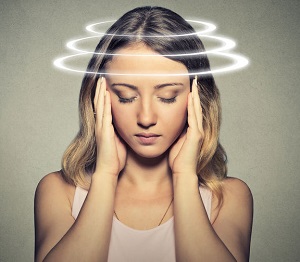Be alert to Dizziness in teenage girls
Dizziness is common in teenage girls. What’s more, teenage girls tend to experience dizziness more than teenage boys, though it’s quite common with both. However, the reasons for dizziness to happen are less clearcut and we must not be offhand about these episodes.
Explanations for Dizziness in Teenage Girls and Boys
There can be some obvious explanations for dizziness, especially for otherwise healthy young people, such as dehydration or excessive physical exertion. Puberty is also a time of great influence on the health of teenage girls, with musculoskeletal growth coinciding with increased experience of symptoms like pain, headache, tiredness … and dizziness. Teenagers may also feel dizzy before fainting, which is also not unusual for this age group.
These type of symptoms are often referred to as functional somatic symptoms (FSS), which are symptoms that apparently have no obvious clinical basis to occur. Research is ongoing but somewhat inconclusive. FSS appear to be more common in teenage girls than boys, and this discrepancy tends to increase through adolescence, but it’s unclear that this is solely due to puberty.
While the impact of FSS might be an obvious, though hard to quantify, part of a teenage girl’s physical development, FSS can also have a significant impact on their emotional and social development. Suffering these symptoms often impacts school performance, peer relationships and creates problems in the family.
Different types of Dizziness
Dizziness can manifest in several ways. It could be lightheadedness, feeling faint or a more general out of sorts experience of unsteadiness or a spinning sensation (vertigo). It can also be accompanied by a loss of balance, even nausea and vomiting. Dizziness is also a common precursor to fainting. The physical action of fainting occurs when blood pressure drops and the volume of blood and oxygen reaching the brain also reduces. Blood pressure can drop due to dehydration, if you quickly change position, or if you stand or sit without moving for too long (eg. soldiers fainting while on parade). People can also faint from a sudden shock, through hyperventilation (fast breaths that deplete oxygen to the brain).
Different reasons for Dizziness
For a teenage girl, FSS symptoms (pain, headache, tiredness and dizziness) are not always the reason for that dizziness, especially if they also experience fainting. A number of underlying health problem or conditions, some of them quite natural, could be diagnosed or addressed by a medical test or with the help of a doctor. Of course, pregnancy can affect blood pressure too.
An iron deficiency in the blood can cause anaemia, and fainting is possible, as a lack of iron hampers getting oxygen to the brain. Girls who experience heavy periods can be iron deficient. Changes in diet or supplements often help.
Drops in blood sugar can also cause dizziness and fainting, as the brain needs sugar for energy. While it’s possible this could be the result of over exercising, eating disorders like anorexia and bulimia are not uncommon in teenage girls, while diabetes might be another cause (hypoglycaemia). In each case, dehydration could bring on dizziness. Diabetes often sees an increase in urination, which leads to dehydration. In eating disorders, starvation or vomiting also lead to dehydration … dizziness and fainting.
Teenage years may also be the first time some girls experience migraine, which can cause dizziness and possible fainting. Twice as many girls experience migraine compared to boys in the same age range. This could be attributed to the natural increase in oestrogen levels brought on in puberty.
Stress as a Trigger for Dizziness in Teenage Girls
Teenage girls are also particularly vulnerable to stress as a trigger for tension headaches or migraine (and dizziness from both). Stress for teenagers can stem from many sources. Common problems include excessive screen time, lack of sleep or a bad diet, while study/exam pressure or bullying at school or even experimenting with drugs and alcohol can be factors.
If dizziness happens often or regularly, it’s best consult your doctor.

